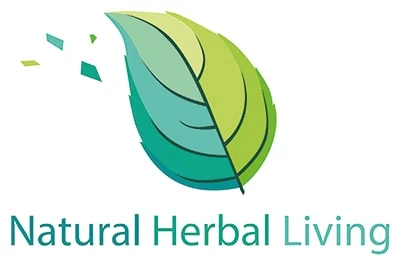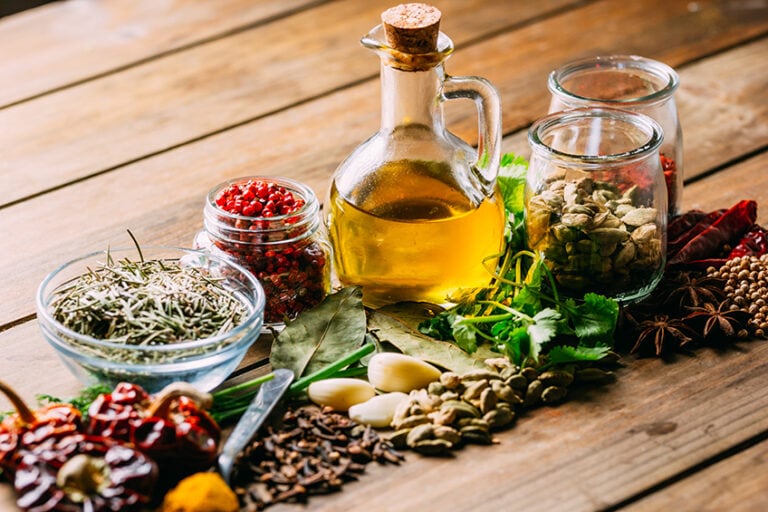Tummy Tamer Herbal Tea
This post may contain affiliate links. We may earn a small commission from purchases made through them, at no additional cost to you.
I have Celiac disease and the gut damage that comes with years of it going undiagnosed. There is a very common set of symptoms ravaging the “industrialized” nations including nutritional deficiencies; chronic diarrhea or constipation; skin rashes like acne, eczema and psoriasis (this is the body’s way of trying to remove toxins any way possible because the liver is overloaded); a low-functioning immune system; headaches; brain fog and memory loss; fatigue; and even ADD and ADHD. All of these have been linked to something called “leaky gut”.
Leaky Gut
Leaky gut, also known as increased intestinal permeability, is the result of damage to the intestinal lining where the cells lining the gut wall actually start to separate, no longer forming a tight juncture, and allow particles that have not finished being broken down into their useable forms to make their way through the intestinal lining and into the body. This creates an immune system reaction, releasing stress hormones and decreasing the body’s ability to digest, incorporate nutrients, reproduce, and more. The body is attacking what it feels is an intruder, leading to increased inflammation (an immune system response) and keeping the body in a parasympathetic nervous system cycle. Basically, leaky gut throws the whole body out of whack every single time you eat, leading to chronic health issues and autoimmune conditions.
Treating leaky gut involves removing things like food triggers and environmental toxins and allowing the body to heal. This is a long process. I tend to recommend the gut healing protocol from the book Gut and Psychology Syndrome (GAPS) by Dr. Natasha Campbell-McBride. If you think you might have leaky gut or food sensitivities, I recommend starting there as it is outside the scope of this magazine.
As a part of my gut healing protocol, I enjoy a gut healing tea every day between breakfast and lunch as well as before bed. I tend to add or remove things as my health needs change, but here is the recipe for my basic gut healing tea and some extras you can add as needed. I focus on anti-inflammatory, soothing, and tonifying herbs to help bring the gut back to a healthy place and to try to tighten those junctures between the microvilli so the food stops escaping before it is properly digested.
Tummy Tamer Herbal Tea Recipe
- 1 part plantain leaf (Plantago spp.) (Our issue all about plantain) – Soothing and moist, but also has an astringent and tonifying quality on tissues, promoting healing and epithelial repair.
- 1 part calendula flowers (Calendula officinalis) (Our issue all about calendula) – Soothing to mucous membranes, warm but not hot, anti-inflammatory, promotes proper digestive function.
- 1 part marshmallow root (Althaea officinalis) (Our issue all about Marshmallow)– The mucilage soothes and forms a protective coating throughout the gut, reducing symptoms of digestive discomforts. I love marshmallow when I have eaten something I shouldn’t have as it helps ease the stabbing burning gut pain caused, in my case, by gluten and peppers.
- 1 part peppermint (Mentha piperita) or spearmint (Mentha spicata) (Our issue all about Mint)– Both are both warming and cooling to the digestive system, but spearmint is less irritating than peppermint. You can include one, the other, both, or leave them out completely depending on your needs. Mints are good to ease indigestion, flatulence, and cool the burning feeling in some cases. It tonifies the gut and helps firm up the tissues.
- 1 part fennel (Foeniculum vulgare) – Fennel is a very common digestive herb. It increases nutrient uptake, reducing that “overfull” feeling, and helps keep things moving in the right direction, a problem those with leaky gut commonly have.
- Pinch of licorice root (Glycyrrhiza glabra) *avoid if you have hypertension* – Licorice is nice and moistening. It aids digestion and supports the body as a whole as licorice is an adaptogen. It is wonderful at reducing stress throughout the body, which is another common contributor to leaky gut.
Directions
- Mix up as much of the blend as you think you will use in 3-6 months and keep it in a cool, dark, dry place.
- To brew this tea, steep 2-3 tablespoons per cup of boiled water. Cover the tea while it is brewing so you don’t lose any of those beautiful volatile oils. Let the tea steep for at least 20 minutes and up to 4 hours.
Other Herbs to Consider Adding
If you have skin issues along with your leaky gut, this indicates the liver needs some love. Liver supporting herbs to add would be dandelion root or leaf, burdock root, yellow dock root, and St. John’s Wort. Please note, do not take St. John’s Wort if you are on any medications without consulting with a botanically knowledgeable healthcare practitioner.
If you have chronic stress and anxiety, try incorporating some adaptogens and nervines into your daily life and formula. One of my favorite gut loving adaptogens (other than licorice) is holy basil, also known as Tulsi. Combine that with some great carminative nerviness like chamomile and lemon balm, which are both fantastic for digestion as well. I also love rose petals as a fantastic astringent, mood and flavor enhancer.
Yarrow is a wonderful anti-inflammatory and helps heal tissues. I find for people with chronic gut issues and pain, yarrow is a great addition to the formula. Avoid yarrow while pregnant due to the high volatile oil content.

